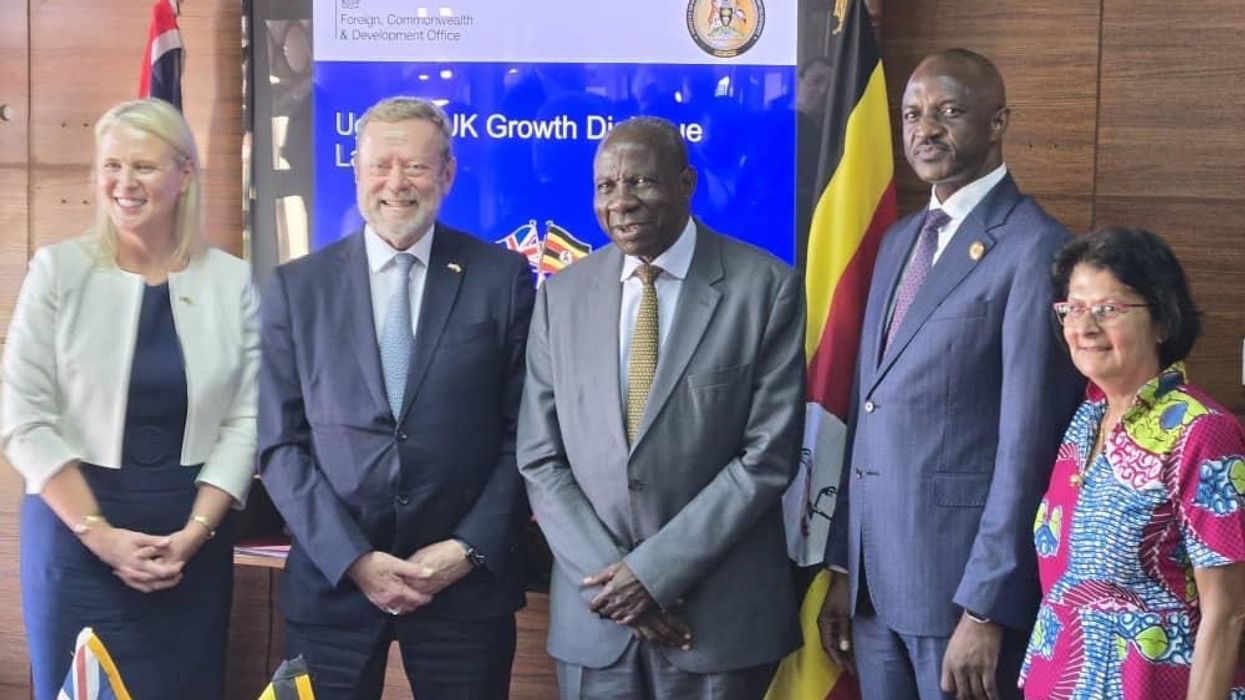LORD COLLINS of Highbury, the minister for Africa, concluded a two-day visit to Uganda last month, reaffirming the UK’s commitment to sustainable development, inclusive partnerships and mutual economic growth.
During the visit (April 3–4), the minister was welcomed by president Yoweri Museveni at State House.
Uganda’s High Commissioner to the UK, Nimisha Madhvani, played a key role during the visit, joining Lord Collins at several important engagements.
The UK-Uganda Growth Dialogue was also launched during the visit; it is aimed at driving investment, improving the business environment, and increasing bilateral trade, in association with Uganda’s Ministry of Finance.
Lord Collins toured Zembo, a UK-supported e-mobility company leading Uganda’s green transport transition.
Backed by Innovate UK and the Private Infrastructure Development Group, Zembo’s electric motorcycles are helping reduce carbon emissions while saving local riders an average of $500 (£374) per year.
At a joint reception with Uganda Airlines, Lord Collins announced the launch of direct passenger flights between Entebbe and London Gatwick from May 18, the first in a decade.
The new route is expected to boost trade, tourism and cultural connections.
“The introduction of direct flights marks a pivotal moment in our shared journey towards deeper economic and people-topeople ties,” said Lord Collins.
He also visited the Uganda Virus Research Institute (UVRI), a flagship centre of UK-Uganda scientific and medical research collaboration.
With over £25 million in UK funding, UVRI has made critical advancements in HIV/AIDS, Ebola research, and infectious viral disease control.
Lord Collins met researchers from both countries, recognising their joint success in strengthening global health security.
“This visit reflects the UK’s enduring partnership with Uganda – built on mutual respect, shared goals, and a commitment to sustainable progress,” Lord Collins said.




